We are living in an age of information. It means that today we have lots of digital resources available by which we can quickly and efficiently disseminate information wherever needed.
Whether you work for a public domain, or a workplace, without any effective digital means, it’s quite impossible for anyone to reach information to the audience perfectly. WordPress and Alfresco are two such digital platforms you can think of.
This article will provide you with a comparative overview of these platforms. So, have a cup of tea and keep reading this write-up on Alfresco vs WordPress.
What Are WordPress and Alfresco?
WordPress is an open-source content management system (CMS) that allows you to create, manage, and publish web pages.
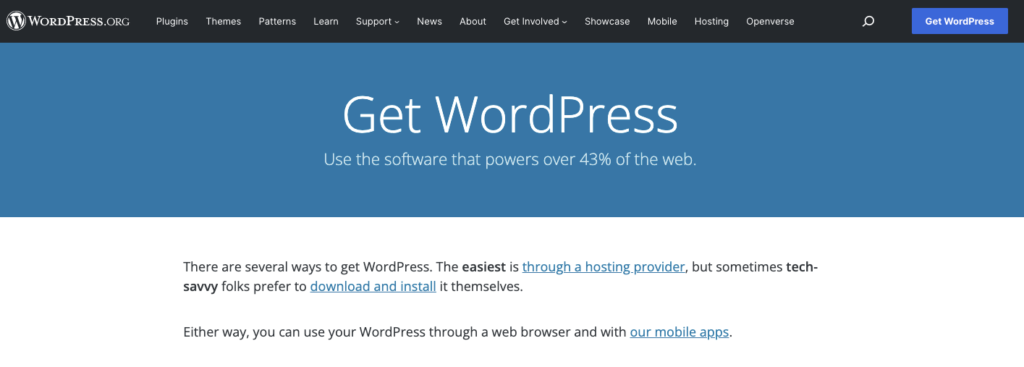
It was originally created as a blogging platform. But over the span of time, through numerous upgrades and updates, it has become a platform by which you can create any type of website you want.
Alfresco is a web-based enterprise content management (ECM) system. It’s an open and cloud-native content management solution that aims to protect the most important information of an organization.
It offers a variety of features, including:
- Document management: Alfresco provides a central repository for all your organization’s content, making it easy to track and manage documents.
- Team Collaboration: Alfresco makes it easy for team members to collaborate on projects, with features such as document sharing and commenting.
- Records management: Alfresco helps organizations to manage and track their records, ensuring compliance with regulations.
- Workflow Management: Alfresco offers a workflow engine that enables businesses to automate their content-related processes.
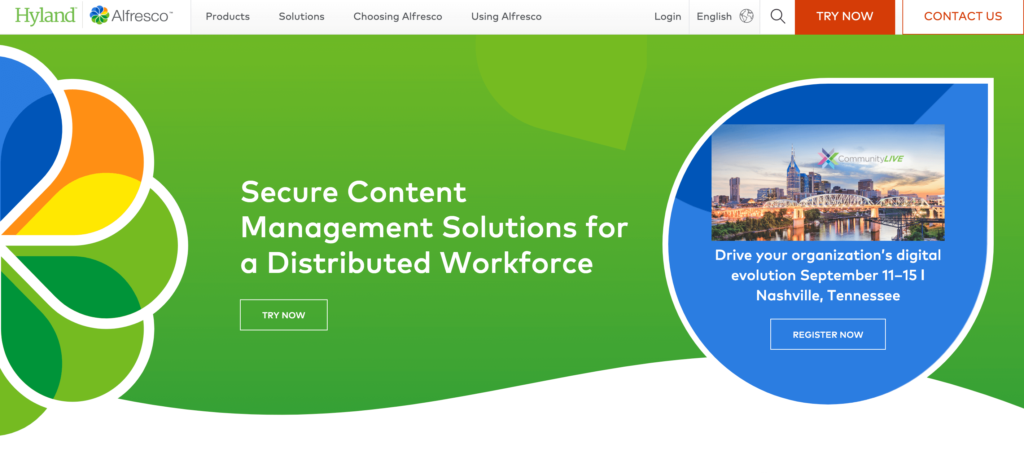
Alfresco allows users to share, access, and manage digital content the same way they can in physical offices.
What Sorts of Users Are Aimed At Alfresco and WordPress
WordPress aims at all types of users. Whether you want to blog, run eCommerce, start dropshipping, sell digital products, create news portals, or enterprise-based resource management systems, WordPress can help you with all that.
Alfresco aims only to the users wanting a web-based enterprise content management system. You cannot do more than it with this software.
Alfresco vs WordPress: Number of Users
As of today, when we are writing this article (August 2022), around 43.2% of all websites available on the web are built on WordPress. It means that over 820 million active websites are currently using WordPress as their content management system.
Inversely, Alfresco is powering up the daily work of over 11 million people in various industry-leading organizations in more than 190 countries. Alfresco has already helped 1,300+ leading organizations like the US Department of Navy, NASA, Pitney Bowes, the Canadian Museum of Human Rights, and more.
Alfresco vs WordPress: Key Differences Between Them
Undoubtedly, WordPress and Alfresco are two ideal platforms to share information with others. But both of them have many distinguishable differences and different use cases too. Let’s explore them in this section.
Easy of Use
Both WordPress and Alfresco have an easy-to-use interface. You will get a wonderful dashboard in WordPress from where you can easily navigate to the post, page, tools, plugins, themes, settings, and any other sections.
Whether you want to create blog posts or pages, the Gutenberg blog editor will give you a seamless experience. No matter what type of content you want to publish, you can upload and publish them from the block editor section.
Alfresco also has a classy dashboard from where you can easily visit the library section, personal file, trash box, and more. It has a drag-and-drop feature integrated. It allows you to move files from one section to another, or upload new files from your hard disk.
So, even if you are a newbie, it won’t take you more than a couple of hours to get used to the ecosystem of these content management platforms.
Design and Customization
Design and customization are so easy with WordPress. Because in the appearance section, you will get 15,000+ free and paid themes available in its library. Using any of them, you can change the layout of your website anytime. The Gutenberg block editor will allow you to alter the text color, fonts, and shape.
Besides, WordPress has many plugins like Elementor, and its extensions are available by which you can your web pages as you wish from scratch.
You won’t get that much flexibility in Alfresco to change its design. The layout will be fixed as it is. But users are allowed to customize its interface color, fonts, file sections, and some limited functionalities.
Plugins and Extensions
WordPress currently has more than 60,000 plugins in its library. If you want to create a blogging site, e-magazine, news portal, e-library, or else, you will get the plugin available to do that.
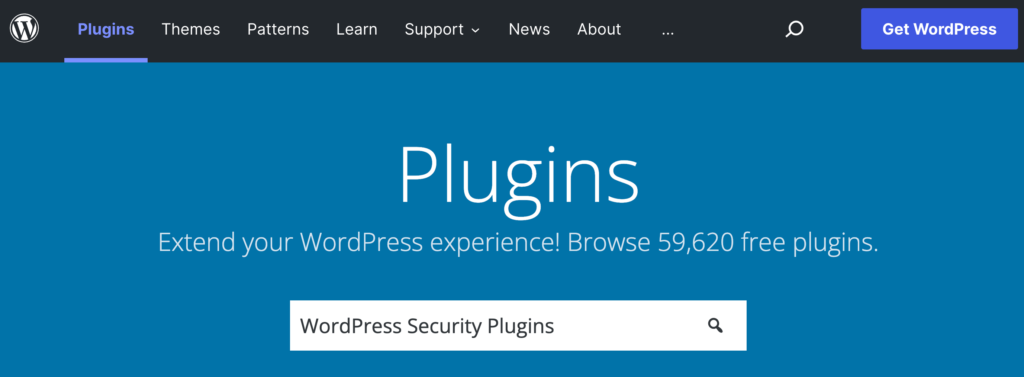
It is almost difficult to not find a plugin in the WordPress library that is a must to enhance the functionality of your website. On the flip side, Alfresco doesn’t have the plugin option, and they actually don’t need it.
Because Alfresco deals with one specific solution – enterprise content management. Whether you are a financial, manufacturing, government, insurance, or healthcare firm, Alfresco has an in-built system to support you.
Alfresco has a mobile app as well. You can use it to share and access files as you do in the web application.
Blogging Feature
WordPress has an inbuilt blogging feature because it started its journey as a blogging platform.
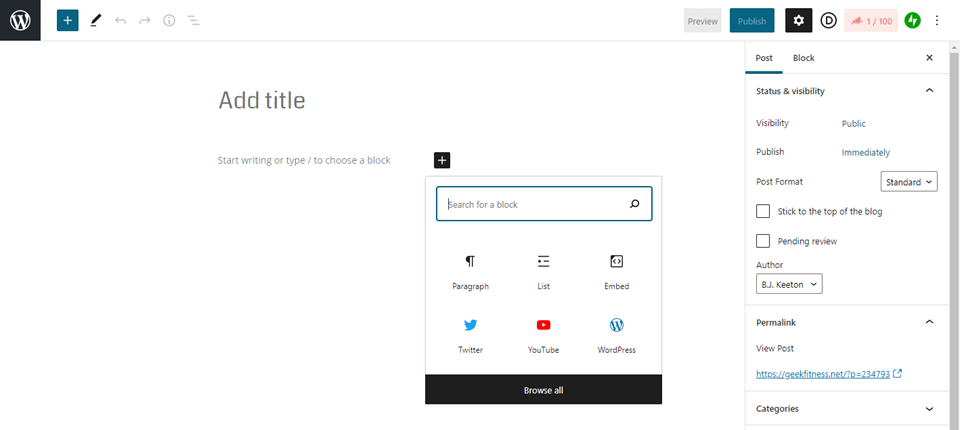
However, if you want to create a dynamic blogging platform, you will find enough plugins available to do that.
Alfresco doesn’t have a blogging option. If you want to share any information publicly with the workplace members, you can create a library and open its access to all. You can even set date for how long this library will be available to access. After that, it will automatically delete the files and documents saved there.
eCommerce Functionality
WooCommerce is one of the most popular plugins created by the WordPress team that enables you to create an eCommerce website in a day. Besides, there are some other popular plugins like Dokan by which you can convert the single online to a multivendor eCommerce website, just as Amazon, eBay, Alibaba, and else.
Alfresco doesn’t have the option for you to create an eCommerce website. But if you have an eCommerce enterprise where plenty of people are working together, Alfresco will help you to manage the team by sharing rightful content and documents.
SEO Feature
WordPress already has many built-in SEO optimization tools and features. Some of the most popular are pinging blog rolling and permalinks. Gutenberg block editor will let you do internal and external linking, add CTA buttons, create alt-tag, and more. For advanced functionalities, you can use plugins like Yoast and Rank Math SEO.
But Alfresco doesn’t need the SEO feature, because you don’t need to take your digital workplace on top of Google search results. Remember, this is just a web application that facilitates content management for the members of an organization.
Maintenance and Security
You will find lots of security plugins in the WordPress.org library by which you can make sure data backup, defend against brute force attacks, malware attacks, and more. Once you buy the premium version of any security plugin, you will get official support from them.
As Alfresco is a cloud-native solution, all your data and documents will be stored in their cloud till the duration of your plan.
Help and Support
WordPress doesn’t offer any official support. But if you use any premium plugin, extension, or theme, you will get live support from their developers. Besides, most renowned WordPress developers usually provide free documentation of their themes and plugins so users can easily operate these products.
Alfresco has a professional team of experts who will provide you with 24/7 official support once you subscribe to its premium plan.
Alfresco vs WordPress: A Snapshot of Key Differences
Let’s have a snapshot of the key points of the above discussion in the table below-
| Topic | Alfresco | WordPress |
| Introduction | Alfresco is an open source enterprise content management platform and famous for Document management, team collaboration, workflow management, etc. | WordPress is an open-source content management system that lets you build any types of websites and famous for blogging and eCommerce. |
| Dashboard and Interface | Easy to use but not so beginner-friendly | Easy to use and beginner-friendly |
| Themes and Customization | Limited | 10,000+ free and premium themes available |
| Plugins and Extensions | Built-in feature | 60,000+ plugins and extensions available |
| Blogging Features | No | Famous for blogging |
| Document Management | Powerful | Available |
| Workflow Management | Powerful | Available |
| Maintenance and Security | Available | Available |
| Price | Quota based | $50-$200 per year as per web requirements |
Alfresco vs WordPress Pricing
WordPress is an open platform. You can download this software and use it for free. But you have to pay for a domain, hosting, premium themes, and plugins. It may cost you around $30-$200 based on the type of website you want to create.
Alfresco isn’t free like WordPress. It offers custom quotes based on your requirements. It has three pricing plans: starter, business, and enterprise edition. For quotation, you have to fill up their form. Within 24 hours they will email or make a phone call to you.
But if you are a tech geek and have the ability to self-support, the community edition products of Alfresco will be freely available for you.
Alfresco vs WordPress- Which Platform is Better for Whom?
When it comes to choosing a content management system (CMS), there are a lot of options to choose from. Two of the most popular options are WordPress and Alfresco. So, which one is better?
It really depends on what you’re looking for and what your needs are. Here are some things to consider when making your decision:
WordPress is Better for
If you’re a small business or individual with a limited budget, WordPress is a good option. It’s free to use and there are plenty of free themes and plugins available.
If you need a CMS that’s easy to use and doesn’t require a lot of technical knowledge, WordPress is a good option.
WordPress is a good choice if you need a simple website or blog.
WordPress is a good choice if you need a site that’s easy to update.
Alfresco is Better for
If you’re a larger organization with more complex needs like document sharing and workflow management, Alfresco is a better choice.
If you need a CMS that’s more customizable, especially for team collaboration and user management, Alfresco is a better choice.
Alfresco is better if you need a more complex website or intranet.
Alfresco is a better choice if you need a site that’s easy to maintain.
How to manage business documents, workflow, team collaboration, and file sharing with WordPress?
As a business owner, you have a lot on your plate. You’re responsible for managing your team, your workflow, and your business documents. And, of course, you want to be able to share files with your team and clients.
Fortunately, WordPress can help you with all of this. WordPress is a powerful content management system that can be used for much more than just blogging. With the right plugins, you can use WordPress to manage your business documents, workflow, team collaboration, and file sharing.
Here are some plugins that can help you get the job done-
Document Management
WP Document Revisions: This plugin helps you manage your business documents. You can track revisions, add comments, and even restrict access to certain documents.
File Management
WP File Manager: This plugin gives you a complete file management system within WordPress. You can upload, delete, move, and rename files and folders. You can also set permissions so that only certain users can access certain files.
WP Media Library: This plugin allows you to manage all your media files in one place. You can upload, organize, and delete files. You can also set permissions so that only certain users can access certain files.
Team Collaboration
WP Team Members: This plugin allows you to manage your team members and their roles. You can add and remove team members, and assign roles such as administrator, editor, or contributor.
WP Project Manager: This plugin helps you manage your projects and team members. You can create and assign tasks, set deadlines, and track progress.
File Sharing
WP File Share: This plugin allows you to share files with your team and clients. You can upload files, set permissions, and even create download links.
Google Drive: This plugin allows you to share files from your Google Drive account. You can upload files, set permissions, and create download links.
Dropbox: This plugin allows you to share files from your Dropbox account. You can upload files, set permissions, and create download links.
With these plugins, you can easily manage your business documents, workflow, team collaboration, and file sharing.
Final Words on Alfresco and WordPress
Indeed, Alfresco is one of the best solutions for enterprise content management. Many big named companies have already been successful in objectives using this application.
But with WordPress, the sky is your limit. There are many plugins available online by which you can convert your WordPress site into an enterprise content management system. HubSpot, WP ERP, WP Fusion, WP-CRM, etc. are some most popular.
If you ever want to use some additional tools to customize your content, like compress, rename, attach to the newsletter, or more, WordPress can help you better than Alfresco. In this sense, WordPress is the winner.
But in the case of security, only WordPress-managed hosting can give you the best security support. It will cost you a lot. Because you have to pay for a domain + hosting + plugin fee.
In Alfresco, you don’t have to worry about separate hosting. Your files and content are perfectly secured in their cloud system. So, Alfresco could be a good choice if you are looking for content management services at an affordable price.
FAQs on Alfresco vs WordPress
Let’s desire your additional quests with the answers to the most frequently asked questions on Alfresco vs WordPress commonly found on the web.
Alfresco is an innovative content management solution. It is used in enterprise-based workspaces to share important files with others in a managed way.
Yes, Alfresco is a cloud-based content management solution.
You will find numerous enterprise-level plugins in WordPress.org by which you can convert your website into an enterprise-level content management solution.
Some of the alternatives to Alfresco include SharePoint, Documentum, and OpenText.
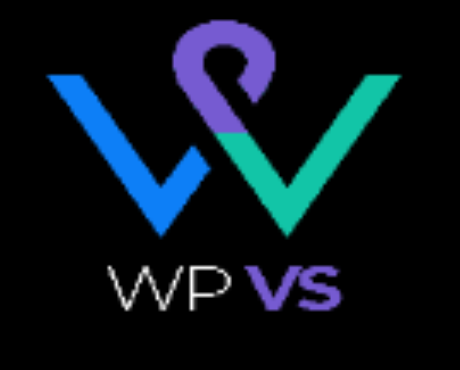
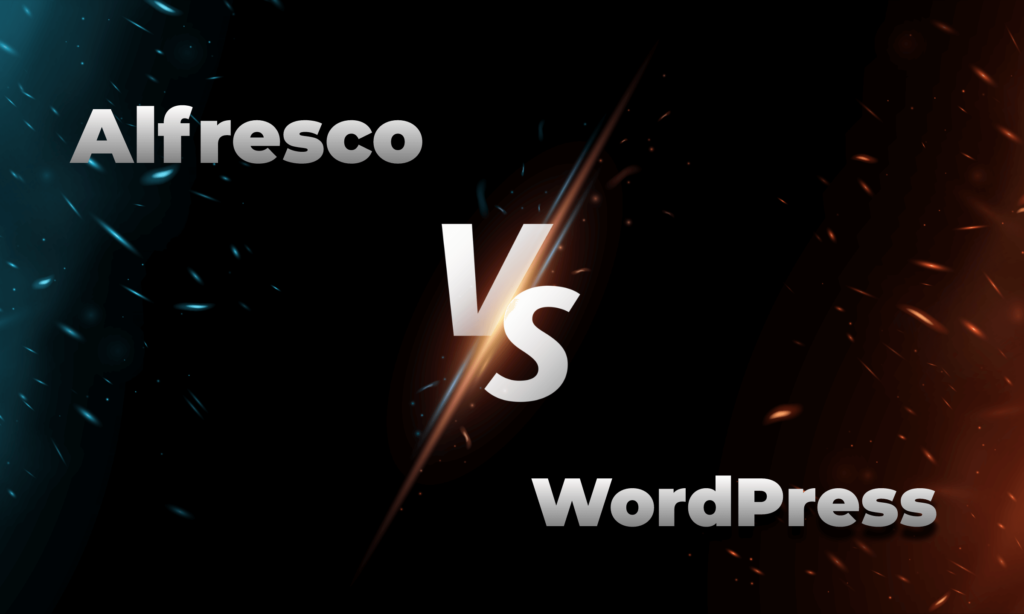
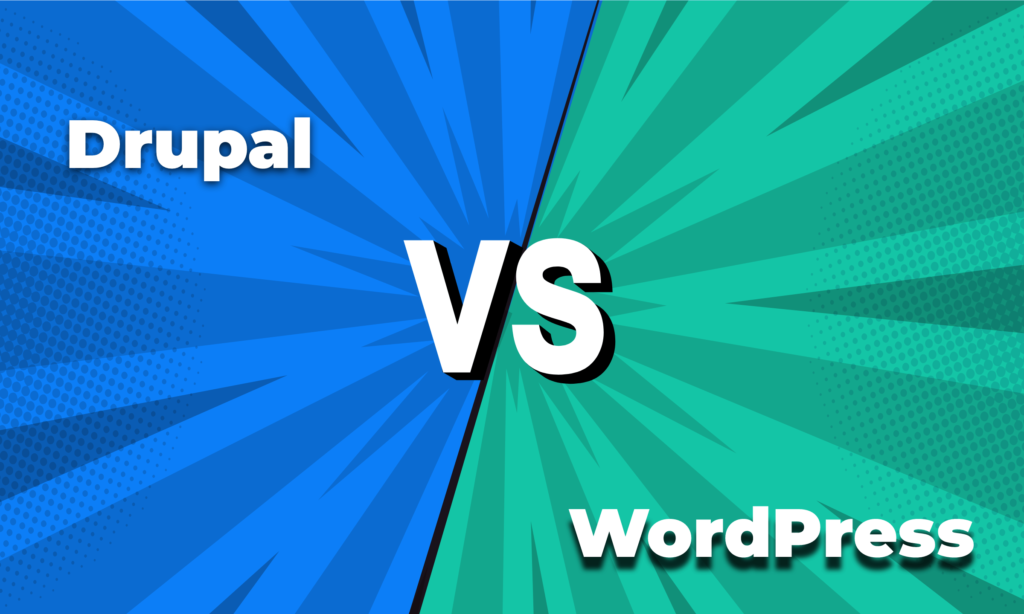
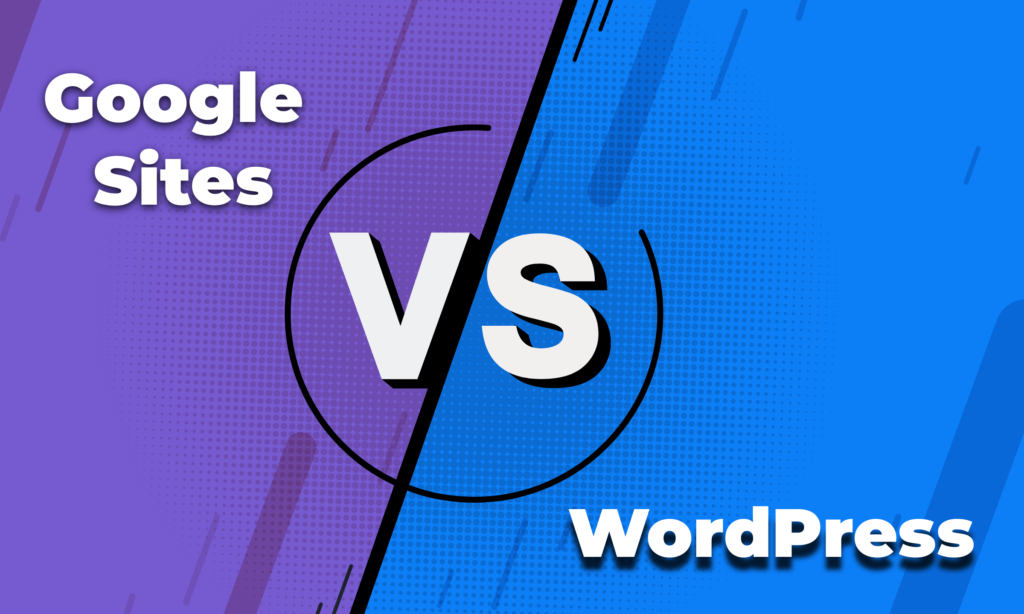
Hey, I am for the first time here. I came across this board and I
found it really useful. Thanks.